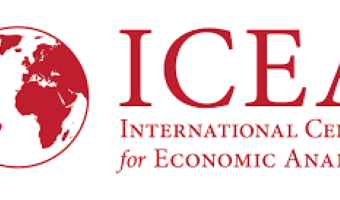In February, the International Center for Economic Analysis (ICEA) organized the Future of Work conference. A special lecture was given by David Autor (Massachusetts Institute of Technology, NBER and IZA) “Where does new work come from?”. Karol Madoń presented the results of a study conducted jointly with Piotr Lewandowski (IBS), Ronald Bachmann (RWI), and Myrielle Gonschor (RWI) on the impact of automation on the labor market in Europe. The authors show that the increase in exposure to automation significantly reduced the risk of job loss (flow from employment to unemployment) and slightly increased the probability of finding a job (flow from employment to unemployment). The results suggest that labor costs significantly impact how much automation affects the labor market. In countries with lower labor costs (Czech Republic, Hungary), automation increased the probability of finding a job, while in countries with the highest labor costs (Sweden, Belgium) it decreased it.

